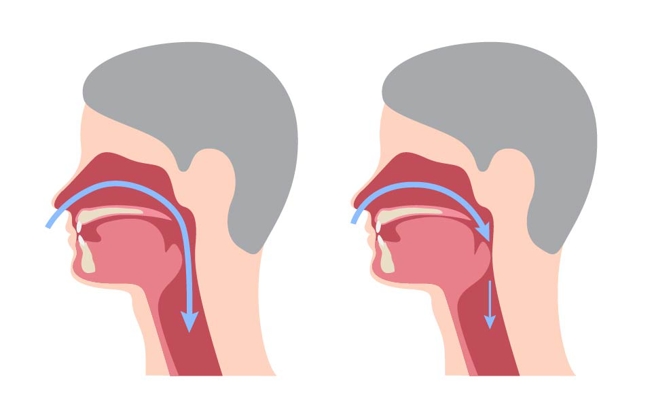Parrish Medical Center Recognized for Stroke Treatment Excellence
- Category: Cardiovascular, Heart Health, Parrish Medical Center
- Posted On:
- Written By: Parrish Healthcare
Premier Healthcare Accrediting Body Awards PMC Stroke Care Gold Seal for Care Quality
Parrish Medical Center’s recertification as a Primary Stroke Center extends its first-in-Brevard County achievement for area patients endangered by stroke’s potentially debilitating effects.PMC’s latest Gold Seal of Approval® and Primary Stroke Center designation was awarded by The Joint Commission, which accredits nearly 21,000 healthcare organizations globally.
“The Joint Commission established the Primary Stroke Center program to set a care standard to protect and saves lives,” said George Mikitarian, Parrish Medical Center president and CEO. “Meeting that standard takes tremendous commitment, resources, and work, but we have long dedicated ourselves to providing the highest levels of patient safety, clinical quality, and healing patient experiences on behalf of the people and communities we serve.
“This Joint Commission’s Gold Seal affirmation of PMC’s quality stroke care means that patients and families can have confidence in the objective measurement, accomplishment, and results, of PMC’s treatment program,” Mikitarian added.
According to The Joint Commission, “The stroke program requirements were developed in collaboration with the American Heart Association/American Stroke Association. Applicants for advanced certification must meet the requirements for Disease-Specific Care Certification plus additional, clinically specific requirements and expectations.”
PMC in 2004 became the third Florida medical center – and Brevard’s first – to reach Gold Seal certification for stroke care.
Every two years since 2004, The Joint Commission has evaluated PMC’s stroke care treatment program on national standards and stringent performance measures. The most recent evaluation, in 2017, resulted in the latest certification.
“Reaching Joint Commission Gold Seal designation is one thing; keeping it by meeting The Joint Commission’s requirements year-after-year is another challenge,” said Edwin Loftin, PMC vice president of Acute Care Services and chief nursing officer. “Constant focus and improvement is essential because the faster and more effective the treatment, the greater the chance to minimize a stroke’s effects or damage.”
“Stroke is a major cause of death and disability,” said David Miller, MD, director, National Comprehensive Stroke Center, “Stroke care has been greatly improved with new drug therapies, including the clot busting agent tPA, administered in appropriate patient populations. About 85 percent of strokes are due to a blood clot blocking a blood vessel to the brain.”
Quick administration of a drug called tPA to dissolve a stroke-causing blood clot and restore blood flow is part of The Joint Commission’s standards followed by PMC, said Gregory P. Cuculino, MD, FACEP, Emergency Department medical director.
“In many cases the drug results in the patient having minimal or no neurological damage from the stroke,” said Dr. Cuculino, “It’s one aspect of our approach to stroke care, which includes prevention, treatment and rehabilitation while always working as a team.”
PMC’s team approach also includes Brevard’s Emergency Medical Services (EMS).
“Partnering with PMC’s Emergency Department as part of its stroke team ensures that life-saving measures are provided to patients at the scene in the first few minutes of a stroke,” said Orlando Dominguez, Jr., RMP, assistant chief of Emergency Medical Services Operations, Brevard County Fire Rescue.
PMC’s Stroke Program includes:
- A team of neurologists, cardiologists, radiologists, emergency medicine physicians, nurses, nurse practitioners, first-responders (EMS/paramedics), case management, therapists (occupational, speech, respiratory and physical), and community educators.
- A stroke unit. Stroke unit nurses (along with ICU and ER nurses) undergo extensive training to become certified in stroke assessment, treatment and rehabilitation. They have annual continuing education requirements.
- PMC’s 14-bed Emergency Department, 12-bed critical care unit (ICU), and full-service rehabilitation center.
- Advanced diagnostic technology, including telemedicine technology, ultra-speed CT and MRI, which provides doctors with accurate results in minutes.
- Community education programs and screenings for stroke risk factors.
Signs of stroke are sudden:
- Numbness or weakness of the face, arm or leg, especially on one side of the body.
- Confusion, trouble speaking or understanding.
- Trouble seeing in one or both eyes.
- Dizziness, loss of balance or coordination or trouble walking.
- Severe headache with no known cause.
An individual experiencing any of these signs, or someone observing an individual dealing with one or more of these indicators, should call 911 immediately.



